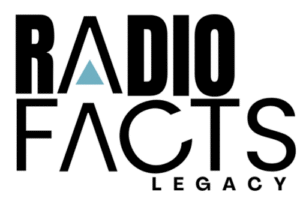The American Society of Composers, Authors and Publirs (ASCAP), one of the world’s leading performing-rights organizations, through the past 100 years has been protecting the use of its members’ musical works, monitoring broadcast, online and live usage and ensuring that music creators are fairly compensated.
In the last five years, ascap has distributed more than $5 billion in royalties to its songwriters, composers and music publir members. An exhibition at the Library of Congress, “ASCAP: One Hundred Years and Beyond,” will celebrate the ascap Collection at the Library of Congress on the occasion of the organization’s centennial, recalling notable moments and artists in its history, exploring its current work and challenges, and looking to its future as a force in mentoring and inspiring the creativity of new generations.
“ASCAP: One Hundred Years and Beyond” opens Thursday, February 13th and runs through Saturday, July 26th, 2014, in the Performing Arts Reading Room Gallery on the first level of the James Madison Memorial Building, 101 Independence Ave. S.E., Washington, D.C. The exhibition is free and open to the public from 8:30am to 5:00pm, Monday through Saturday.
The exhibition will then travel to Los Angeles, opening at the Walt Disney Concert Hall in its Library of Congress Ira Gershwin Gallery on August 23rd, 2014 and running through February 14th, 2015. The exhibition features 45 objects, including et music, photographs, pamphlets, posters and more. Some highlights include the first ascap license, which was issued to Rector’s Restaurant in New York City (Broadway and 44th Street) in 1914; the original manuscript of “The Pink Panther,” in the hand of composer Henry Mancini; Paul Williams’ lyrics for “The Rainbow Connection”; and the original lyrics, including drafts and revisions, for “The Way We Were” by Alan and Marilyn Bergman.
An audio Radio Station will offer selections from ASCAP’s first 25 years, and an interactive timeline Radio Station will explore 100 years of ascap. A video screen will display a film, Why We Create Music, featuring artists Lady Antebellum, Ne-Yo and more, that explains how ASCAP’s work enables songwriters to be creative. The video screen also will show highlights from The ascap Foundation’s annual musical evening at the Library of Congress to celebrate the ascap Collection.
Several display items will describe ASCAP’s mission of inspiring and mentoring young musicians and writers – which it does through master classes, competitions and scholarships – and encouraging musical arts in schools.Artists represented in the exhibition include Victor Herbert, Irving Berlin, Aaron Copland, Lyle Lovett, Garth Brooks, Hal David, Marvin Hamlisch, Barbra Streisand, Duke Ellington, Alan and Marilyn Bergman, Stephen Schwartz, Adam Guettel, Carolina Chocolate Drops and more.
Also on display will be three pages from the U.S. Supreme Court 1917 landmark decision in Herbert v. Shanley Co., written by Associate Justice Oliver Wendell Holmes, Jr. Songwriter Victor Herbert, one of the founders of ASCAP, sued Shanley’s Restaurant in New York City over its use of his musical work during dinner service. Holmes said whether the business made a direct profit from the use of this music did not matter, since “the purpose of employing it is profit and that is enough.”
The decision forced Shanley’s Restaurant to pay a fee to Herbert for playing his song, and also represented a much broader victory for the new ascap organization. In the wake of the successful court decision, ascap was able to embark upon its mission to license, collect and distribute royalties for its members’ public performances, while championing the right of creators to be paid for their work.
The exhibition is made possible through the generous support of the Ira and Leonore Gershwin Trust for the benefit of the Library of Congress. Exhibition curators from the Music Division are Loras Schissel and Kate Rivers. Exhibition directors from the Library’s Interpretive Programs Office are Betsy Nahum-Miller and Carroll Johnson.





